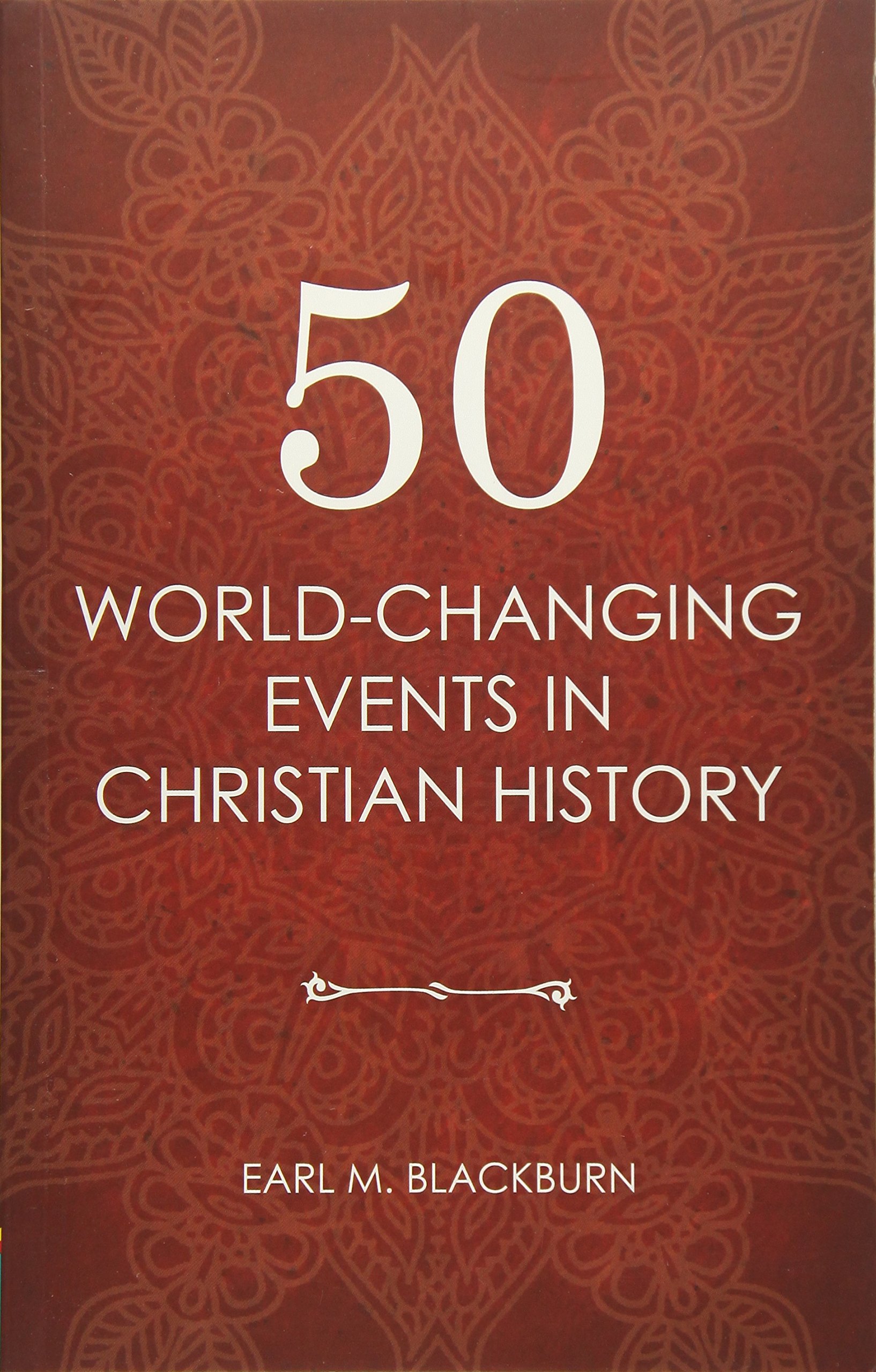A Book Review from Books At a Glance
By Bennett W. Rogers
Occasionally I am asked to recommend a popular introductory survey of church history by an interested church member or student, but as fans of the discipline know, works of this nature are hard to find. In the past, I’ve pointed inquirers to Justo Gonzales’ The Story of Christianity (volume 1 and volume 2) or Mark Noll’s Turning Points. In the future, I will point them to Earl M. Blackburn’s 50 World-Changing Events in Church History.
As the title suggests, the work focuses on fifty history-shaping and world-changing moments in church history. The author chose fifteen such moments from the patristic era, twelve from the medieval, thirteen from the early modern period, and ten from the modern. These include important events (the Council of Nicaea), people (John Wycliffe), works (the publication of The Pilgrim’s Progress), as well as movements (the birth of the Modern Missionary Movement). The discussion of each event is limited to approximately twelve to thirteen hundred words.
The strengths of this work are many. One of the most outstanding features is its design. By focusing on so many events from different historical eras, the readers get a sense of the overarching flow of church history in the West. The East is discussed on occasion during the first half of the work, but after the Protestant Reformation the focus is almost exclusively Western. This is not a problem, however, since it is an introductory work written for Christians in the West.
Another outstanding design feature is the brevity of each chapter. The relatively short, but clearly and concisely written chapters, make for easy and enjoyable reading. Furthermore, this format allows the book to be used like a reference work. I recently gave a talk on the history of Islam, and I found his summary of the Battle of Tours (event 18) to be extremely helpful in preparation. By way of contrast, the Battle of Tours isn’t even discussed in third edition of The Oxford Dictionary of the Christian Church, which is usually my primary go-to resource for church history queries.
Blackburn’s work is what might be called a pastoral history. He doesn’t merely relate the facts of a given event – he explains the spiritual significance, and occasionally makes personal application. For example, after explaining something of the significance of the publication of Calvin’s Institutes, Blackburn adds, “Why not read the book and get to know John Calvin better? It could very well change your life.” This pastoral touch is a strength of the work, not a weakness. Bishop J. C. Ryle does the same thing in his biographical sketches of the English Reformers, Puritans, and the leaders of the Great Awakening. The Greek historian Thucydides argued that history is merely philosophy teaching by example, and Blackburn’s commentary helps to highlight some of these lessons.
Blackburn writes as an evangelical and reformed Protestant, and these convictions inform the selection, explanation, and application of these events. Overall, I think he proves to be remarkably evenhanded. His treatment of Pope Gregory the Great is a case in point. As a Protestant, he is understandably critical of the rise of the papacy, in general, and Gregory’s role in its rise, in particular. But he is quick to praise Gregory for his devotion to the Scripture, his skill as a preacher, and his influence over church music. Such balance is characteristic of the work as a whole.
One drawback of a book of this nature is that readers may quibble with the author’s decision to include certain events and exclude others. If I were in Blackburn’s shoes, I probably would not have included events such as the publication of The Didache (2), the Waldensian Movement (24), and the rise of social media (50). And I might have replaced them with chapters on the Benedictine Rule, Francis of Assisi, the English Book of Common Prayer, or the hymns of Charles Wesley. However, I am willing to bet that if ten different church historians were asked to make their own list of the fifty most important events in church history, no two lists would be exactly the same. In short, Blackburn’s selections are sound, there are no glaring omissions, and those who read his work will get a good, entry-level survey of the flow church history.
I warmly commend 50 World-Changing Events in Christian History by Earl M. Blackburn to pastors, students, and fellow church members. It is an excellent popular and pastoral entry-level church history survey in the vein of Mark Noll’s Turning Points.
